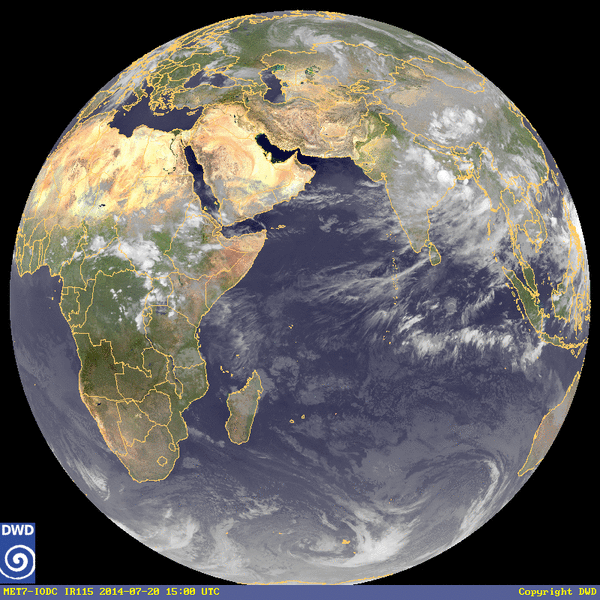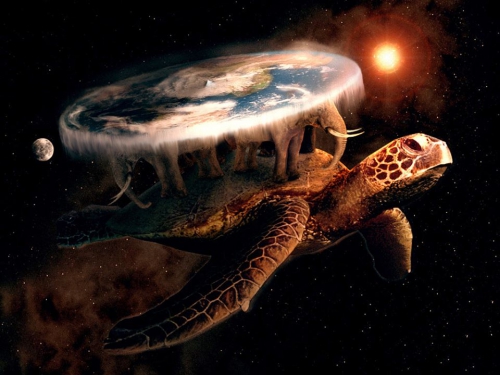le grand cycle de 26 000 ans touche à sa fin - THE PRECESSIONAL CYCLE AND THE EARTH'S ICE AGES
il doit sembler incroyable, si différent de croyances communes. ses toujours les mêmes, à l'époque de Noé. le grand cycle de 26 000 ans touche à sa fin. Il semblerait que le cycle commence avec le Verseau.

THE PRECESSIONAL CYCLE AND THE EARTH'S ICE AGES
ã 2000 by Lance Carlyle Carter
This table shows the correspondence between recent ice ages and the 26,000-year precessional cycle. This table implies that we may be in for another ICE AGE at about 3000 AD, but there are other factors that could change that. Notice that the ice ages seem to skip a cycle or two, so another ice age may not occur for another 27 thousand years or more. Human tinkering with the earth's environment and atmosphere may affect the cycle of ice ages, so who knows when and if an ice age may occur. Global warming may even melt the ice caps and then thrust us into an unexpected ice age.
The 'Age Of:' column shows that most of the recent ice ages occurred in during the Age of Aquarius with one exception in the age of Leo.
The 'Recent Ice Ages' column features the names of the recent ice ages and when they began and the cycles ago are in the 'Cycles Ago' column.
The 'Cycles' column shows multiples of the 26,000-year cycle back into the past
The 'Aquarian Age Begins' column lists how many years ago that Aquarian Age began.
The 'Approximate Dates' column shows the approximate Julian calendar dates.
| Aquarian Age | Approximate Dates | |||
|---|---|---|---|---|
| AGE OF: | RECENT ICE AGES | Cycles | Begins Years ago: | Date Age Began |
| Aquarius | Global warming may prevent new ice ages | 0 | Began 3/19/2000 AD | Began 3/19/2000 AD |
| Aquarius | 4th Glaciation # III starts 25k ago (23k BC) | 1 | 26,000 | 24,000 BC |
| Aquarius | no ice age | 2 | 52,000 | 50,000 BC |
| Aquarius | 4th Glaciation # II starts 72k ago (69k BC) | 3 | 78,000 | 76,000 BC |
| Aquarius | no ice age | 4 | 104,000 | 102,000 BC |
| Aquarius | 4th Glaciation # I starts 130k ago (128k BC) | 5 | 130,000 | 128,000 BC |
| Aquarius | no ice age | 6 | 156,000 | 154,000 BC |
| Aquarius | no ice age | 7 | 182,000 | 180,000 BC |
| Aquarius | 3rd Glaciation starts 210k yrs ago (208k BC) | 8 | 208,000 | 206,000 BC |
| Aquarius | no ice age | 9 | 234,000 | 232,000 BC |
| Aquarius | no ice age | 10 | 260,000 | 258,000 BC |
| Aquarius | 1ST Glaciation = 570,000 yrs ago (568k BC) | 22 | 570,000 | 568,000 BC |
Notes about the cycles of the Ages by Lance Carlyle Carter
Next sequential date for the start of next ice age could be in 3,000 AD. Several recent ice ages occurred in the middle of previous great Ages of Aquarius, indicating that there may be some relationship between the earth's inclination to the sun, which the great ages measure.
GREAT GLACIATIONS IN THE PAST CYCLE # Precessional Cycles In Relation to Global Glaciations
The 4th Glaciation # III started about 25,000 years ago. (1) (May be related to the 26,000-year precessional cycle.)
The 4th Glaciation # II started about 72,000 years ago. (?)(2.769 cycles ago. - no obvious precessional significance)
The 4th Glaciation # I started about 130,000 years ago. (5)(Exactly 5 precessional cycles ago) (130,000 / 26,000 = 5)
The 3rd Glaciation started about 210,000 years ago. 8.08 (8.077 Great cycles ago = 8 cycles and 2,000 years past the cycle mark.)
The 2nd Glaciation started 455,000 years ago. 17.5 (17.5 great cycles) (half cycle-13k years)(Vega of Lyra was the pole star.)
The 1st Glaciation started 570,000 years ago. 22 (21.923 great cycles = 21 Cycles Ago plus 24,000 years = 2000 years less)
(Note that 570k years is close to being a multiple 26,000 years. (22 cycles +24k) Did the precessional cycle slow down in the last 500,000 years?)
The Great Ice Age started 2 million years ago 77 (76.92 great cycles = about 77 Great Precessional Cycles Ago)
Notes: (These Glaciation dates are approximate.)
Conclusions: The precessional cycle is related to the moon's orbit of the earth. Billions of years ago when the earth and moon were forming, the regular motion of the moon around the earth stabilized the rotation of the earth on its axis. The moon's orbiting of the earth contributes to the pointing of the earth's axis to north. The Major Glaciations of the earth in recent times seem to have a direct correspondence to the 26,000-year cycle related to the precession of the equinox. The wobble of the earth on its axis makes different parts of the earth face the sun during different ages, thereby causing certain areas to melt the ice. The glaciated landmasses become thicker and the sea level would lower when ice ages occur. The fact that several of these great ice ages started at regular intervals indicates that we may be due for the start of another ice age sometime in the next thousand years or so. In that case, thank God and global warming, which may stave off the cold. It's 80,000 years until the peak of next major ice age according to Hoffman and Schrag in the article "Snowball Earth" Scientific American January 2000. Notes on the human timeline: Human ancestors split from apes 18-30 million years ago. True humans are thought to have been around for at least 1 million years now. Hominoids such asustralopithecines lived from 1 to 2 million years ago in the Early Pleistocene era. Neanderthal Man peaked in Europe about 120,000 years ago but were replaced by Homo Sapiens 70k ago. Written history may have began as early as 5,200 years ago or about 3,200 BC although this date keeps getting pushed back as more archeological evidence is found. Early markings on bone may represent lunar calendars that are much earlier and astronomical too.Please check out our Web site: www.aquarian-age.net
A découvrir aussi
- prêts à coucher avec des robots
- ARCHEOLOGIE et GOOGLE
- L’or de retour en Allemagne… n’est pas l’or que l’Allemagne avait confié

